To effectively reverse injustices in environmental policy, it is imperative to infuse equity into clean energy policy and encourage more people of color to become entrepreneurs within the sector.
While raising awareness about environmental inequities is undoubtedly essential, the HBCU Community Development Action Coalition (CDAC) is determined to do much more than that. HBCU CDAC works with HBCUs and Minority Serving Institutions (MSIs) to develop programs that benefit their students, staff, faculty, and surrounding communities’ residents. In 2017, they created the Clean Energy Initiative in partnership with the Department of Energy to offer lower-income families access to clean and more cost-effective energy options like solar. They launched the initiative in the city of Baltimore and worked closely with Morgan State University to start installing solar panels on residential properties at no charge to the owners.
In addition to continuing the expansion of residential solar, CEI is also concentrating on initiatives such as energy audits for HBCU/MSI campus buildings and commercial solar installation for those campuses and businesses nearby. CEI’s other objectives include connecting community residents and students to alternative energy training programs and careers and partnering with like-minded organizations such as The Solar Energy Industries Association. To effectively reverse injustices in environmental policy, it is imperative to infuse equity into clean energy policy and encourage more people of color to become entrepreneurs within the sector.
While CEI’s work is making a real difference, they cannot do it alone. The World Resources Institute has provided three recommendations for ways that local governments could positively impact racial justice within their cities and states. Their recommendations include proactively recruiting leaders from frontline communities, defining meaningful success indicators with both the residents and leaders and finally implementing programs equally and equitably. An example of a city that is rolling out policies with citizen involvement is Orlando, Florida. Working with Greenlink Analytics, “The city planners presented visually simple (but analytically sophisticated) clean energy calculators which enabled residents to measure things that were important to them such as bill savings, job creation, and public health.” This action helped to get the buy-in of both residents and businesses, which is crucial. The WRIis producing additional guidance so that other cities can follow Orlando’s example and develop inclusive policies that will work for all of their citizens.
So, while organizations like HBCU CDAC’s Clean Energy Initiative and Local Governments can undoubtedly make an impact, it’s ultimately up to citizens to push for the prioritization of green and just policies. There are plenty of ways to get involved, and CEI has provided a list of resources. Also, writing and calling congressional representatives directly can be highly effective. Policies will only change when enough people get involved and start speaking up for those who may not be able to speak up for themselves.
If you would like to learn more about our Clean Energy Initiative, contact us or go to our website

